Lamborn urges military leaders to be less secretive on space issues
Monday, 17 April 2023 21:01
Solar sails could guide interplanetary travel, says new study
Monday, 17 April 2023 19:50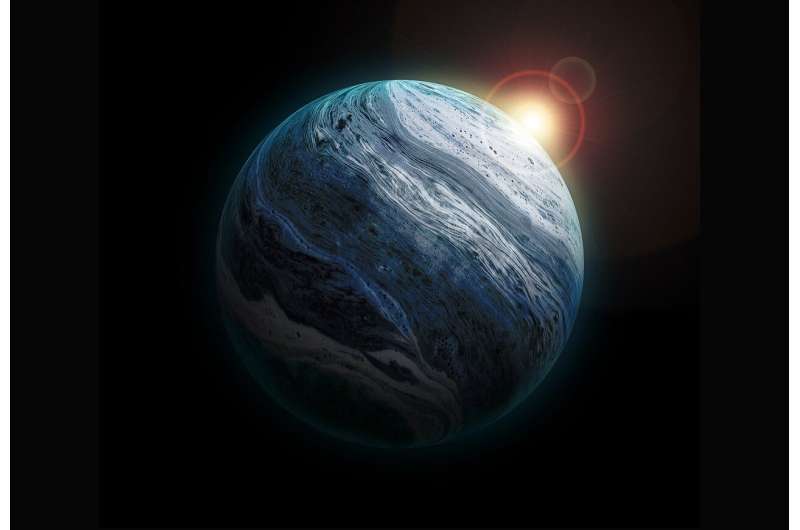
Space travel has brought us to our next-door neighbor, the moon, and to the depths of our larger solar community inhabited by giants such as Saturn and Jupiter.
In 1982, Voyager 2 whisked past Uranus closer than any other spacecraft has since, and now is sailing—46 years after its launch—through the constellation of Pavo, some 179 light years from Earth.
But there have been few comparable satellite missions in recent years. Cost is the main obstacle, but time frame is also a factor. The design for such long journeys takes years to calculate, and planning and construction of a space vehicle would take about a decade. Factoring in the time a satellite would require to reach distant targets means our next peek into the stars will likely not come any time soon.
A team of scientists led by Slava Turyshev of the Jet Propulsion Laboratory at the California Institute of Technology, which launched the Voyager satellites back in 1977, is anxious to get space exploration back on track. The team proposes a novel means of travel that could get us to the stars faster and cheaper.
Solar sails could guide interplanetary travel, says new study (Update)
Monday, 17 April 2023 19:50
Space travel has brought us to our next-door neighbor, the moon, and to the depths of our larger solar community inhabited by giants such as Saturn and Jupiter.
In 1982, Voyager 2 whisked past Uranus closer than any other spacecraft has since, and now is sailing—46 years after its launch—through the constellation of Pavo, some 179 light years from Earth.
But there have been few comparable satellite missions in recent years. Cost is the main obstacle, but time frame is also a factor. The design for such long journeys takes years to calculate, and planning and construction of a space vehicle would take about a decade. Factoring in the time a satellite would require to reach distant targets means our next peek into the stars will likely not come any time soon.
A team of scientists led by Slava Turyshev of the Jet Propulsion Laboratory at the California Institute of Technology, which launched the Voyager satellites back in 1977, is anxious to get space exploration back on track. The team proposes a novel means of travel that could get us to the stars faster and cheaper.
Keeping watch on aggressor satellites a key challenge for U.S. Space Force
Monday, 17 April 2023 18:31
The U.S. Space Force is facing a new challenge in its role to safeguard the country's satellites from foreign threats, as Russian and Chinese satellites engage in disruptive maneuvers and follow other nations' spacecraft in orbit.
Lockheed Martin declares success demonstrating tech for in-orbit satellite servicing
Monday, 17 April 2023 18:19
The Linuss experiment — short for Lockheed Martin’s In-space Upgrade Satellite System — went to orbit on the USSF-44 national security mission launched by a SpaceX Falcon Heavy.
The moon may be the best place to transport rocket fuel
Monday, 17 April 2023 17:56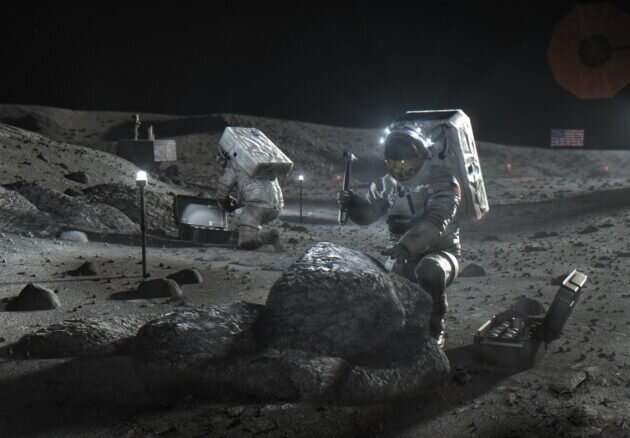
When astronauts return to the moon in the next few years, the plan is to have them stay for good while establishing a permanent outpost on Earth's nearest celestial neighbor. Like all space missions, a lunar outpost will require fuel for long-term sustainability, but would it be better to mine fuel on the moon or get fuel resupply from the Earth? This is what a team of researchers led by Bocconi University in Italy hope to address as they addressed the best option in terms of deriving fuel from either the Earth or the moon.
Mattia Pianorsi, who is a junior researcher of the Space Economy Laboratory at the SDA Boccini School of Management and a Ph.D. Candidate at the University of St. Gallen, recently told Universe Today the main objective of the study was to ascertain the economic and technical feasibility of mining fuel from the moon's water ice deposits or from the Earth.
Both options would use an orbiting depot (OD) which Pianorsi says would be used "as a distribution channel for satellites as well as rockets in space.
NASA plans could threaten the future of New Horizons
Monday, 17 April 2023 17:40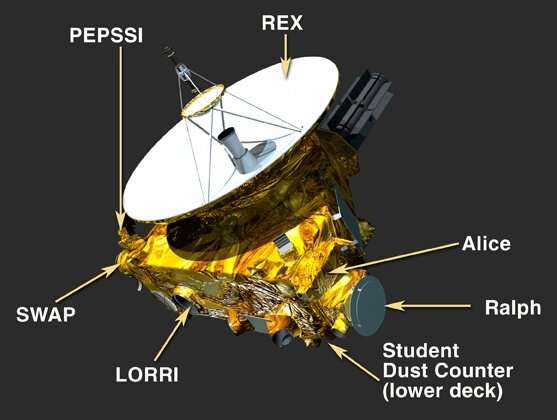
The New Horizons mission currently flying through the Kuiper Belt could be facing an unexpected change of plans. NASA's Science Mission Directorate is soliciting input on turning the spacecraft into a heliospheric science probe. The agency wants to do it much sooner than mission planners intended. If that happens, it will stop further planned planetary exploration of objects in that distant regime of the solar system.
The changes NASA proposes come as a surprise since the spacecraft continues to perform Kuiper Belt object observations. And, it has received a very good recent senior science review. That report stated, "This is likely the only spacecraft humans will send through the outer solar system for at least 20–30 years.
How to build a robot arm that can flex in the moon's frigid south pole
Monday, 17 April 2023 16:56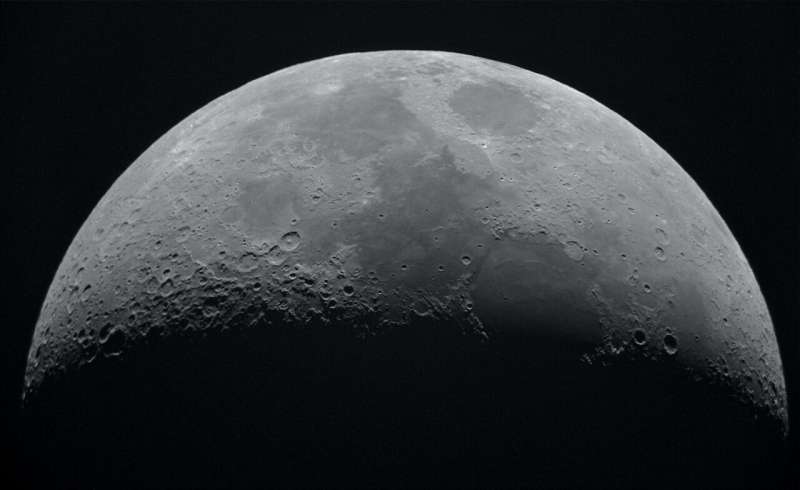
Extreme cold is merciless on machinery. Fluids thicken to useless goo. Rubber seals stiffen and crack.
The problems pile up as the temperature falls. Metal becomes brittle, and wires contract. Batteries stop working, adhesives stop sticking and LCD screens go black as their liquid crystal freezes solid.
And that's just here on Earth.
When NASA's new lunar rover lands on the moon's south pole next year, it will encounter a whole new kind of cold.
Temperatures there hover around minus 280 degrees Fahrenheit (minus 173 degrees Celsius). In the permanent shadows of polar craters, it can fall to minus 388 F (minus 233 C).
For context, Antarctica's Vostok Station holds the record for the lowest temperature ever recorded on this planet: minus 128.6 F (minus 89.2 C), recorded July 21, 1983. A typical day on the moon is about 150 degrees colder than the coldest it has ever been on Earth.
Previous rovers for the moon and Mars—which is also cold, averaging minus 80 F—have been equipped with built-in heaters that switch on at the start of the lunar or Martian day and take several hours to warm enough for the machines to begin their daily tasks.
Options for achieving Tactically Responsive Space
Monday, 17 April 2023 14:00
The U.S. Space Force is considering a variety of ways to rapidly respond to changing threats. One option is storing a satellite like Victus Nox, the satellite Millennium Space Systems […]
Crunchtime ahead for Victus Nox
Monday, 17 April 2023 14:00
The U.S. Space Force is conducting an important test of its ability to rapidly respond to world events.
The post Crunchtime ahead for Victus Nox appeared first on SpaceNews.
SpaceX scrubs Starship launch, runs clock down to 10 secs for wet dress rehearsal
Monday, 17 April 2023 12:48 SpaceX on Monday postponed the first test flight of Starship, the most powerful rocket ever built. Liftoff of the giant rocket was called off just minutes ahead of the scheduled launch time because of a pressurization issue, SpaceX officials said.
SpaceX on Monday postponed the first test flight of Starship, the most powerful rocket ever built. Liftoff of the giant rocket was called off just minutes ahead of the scheduled launch time because of a pressurization issue, SpaceX officials said. SpaceX scrubs first Starship launch attempt
Monday, 17 April 2023 12:40
SpaceX called off the first attempt to launch its integrated Starship vehicle from Texas April 17 because of a valve problem.
SpaceX postpones test flight of Starship, world's biggest rocket
Monday, 17 April 2023 12:36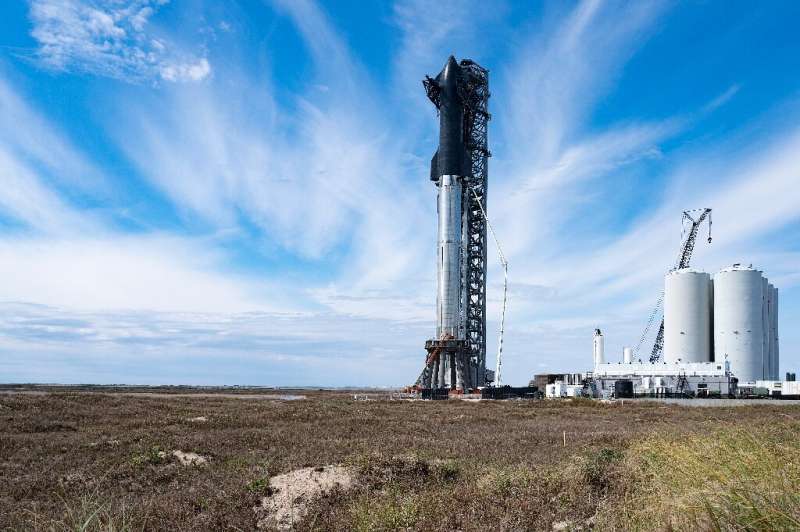
SpaceX on Monday postponed the first test flight of Starship, the most powerful rocket ever built, designed to send astronauts to the Moon and Mars and beyond.
Liftoff of the giant rocket was called off just minutes ahead of the scheduled launch time because of a pressurization issue in the booster stage, SpaceX officials said.
SpaceX said the launch will be delayed for at least 48 hours.
Starship had been scheduled to blast off at 8:20 am Central Time (1320 GMT) from Starbase, the SpaceX spaceport in Boca Chica, Texas.
The US space agency NASA has picked the Starship spacecraft to ferry astronauts to the Moon in late 2025—a mission known as Artemis III—for the first time since the Apollo program ended in 1972.
SpaceX scrubs test flight of Starship, world's biggest rocket
Monday, 17 April 2023 12:36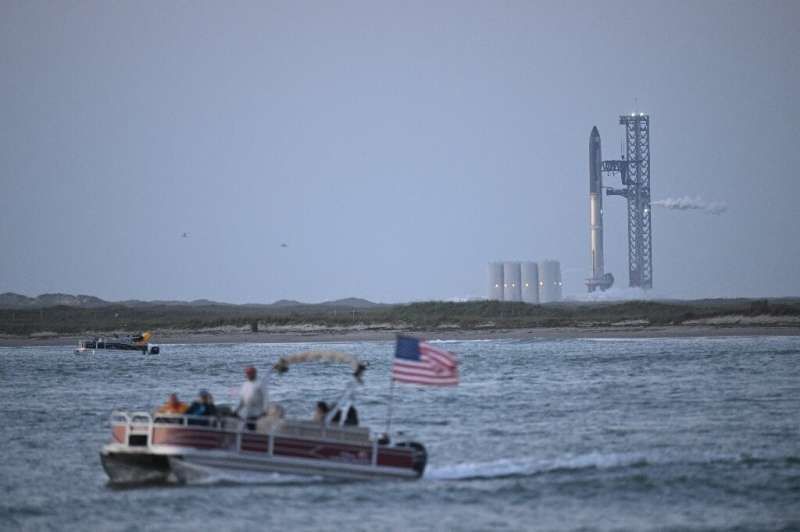
A frozen valve forced a postponement on Monday of the first test flight of SpaceX's Starship, the most powerful rocket ever built, designed to send astronauts to the Moon, Mars and beyond.
Liftoff of the gigantic rocket was called off less than 10 minutes ahead of the scheduled launch because of a pressurization issue in the first-stage booster, SpaceX said.
The private space company continued with the countdown in what it called a "wet dress rehearsal," stopping the clock with 10 seconds to go, just before the massive engines on the booster were to have been ignited.
SpaceX founder Elon Musk said a frozen pressure valve forced a scrub of the launch, which had been planned for 8:20 am Central Time (1320 GMT) from Starbase, the SpaceX spaceport in Boca Chica, Texas.
On National Security | Satellite imaging industry responds to demand for intelligence fusion
Monday, 17 April 2023 11:00
The war in Ukraine has shown the power of commercial satellites to deliver crucial intelligence to the world. The satellite imagery industry is trying to build on that momentum and […]

